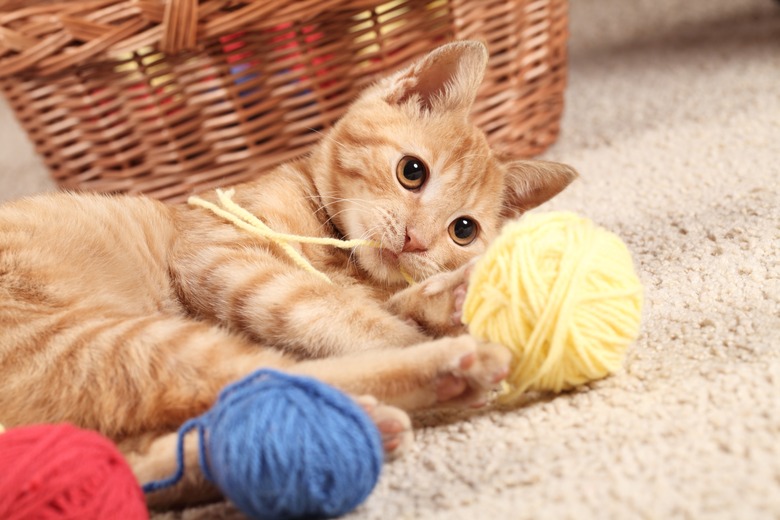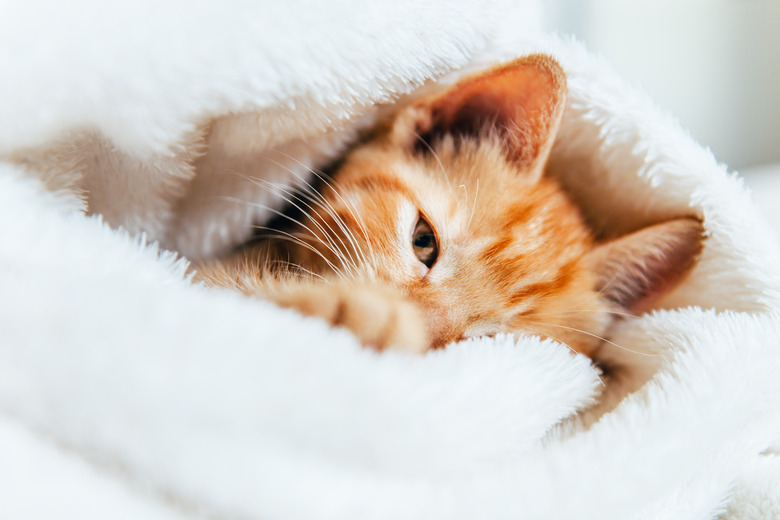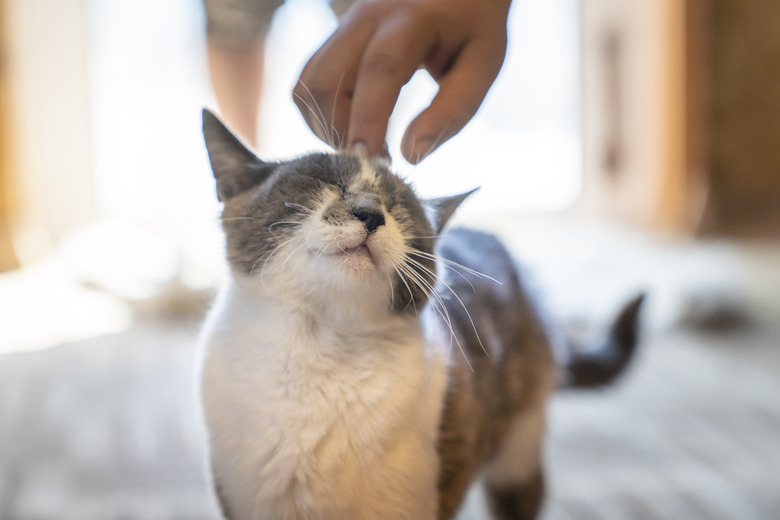Suckling Behavior In A Cat
If your adult cat suckles like a kitten on your clothing or even on your arm, don't be alarmed. Some cats will suckle on fabrics and people out of a need for comfort or as a show of affection. While cat suckling behavior is generally harmless, it can become annoying if it becomes compulsive and possibly dangerous if your cat ingests the fabrics she's sucking on.
Cat suckling behaviors
Cat suckling behaviors
Suckling is an infantile behavior that usually makes an adult cat feel less anxious, just as it did when she was a baby. The behavior is akin to a grown human's thumb sucking. Your kitty will likely start by kneading a soft textile, then she'll lick, suck and chew on it. Some kitties don't do textiles; they suckle other cats and people—which can cause skin irritation in the suckled party.
Suckling behavior may occur occasionally or compulsively. Cats who compulsively suckle have trouble stopping, even when you provide distractions with toys or treats. If your adult kitty has recently started suckling, take her to the vet to rule out a medical cause such as hyperthyroidism.
Causes of cat suckling
Causes of cat suckling
The most common cause of suckling in cats is early separation from their mothers and littermates. Kittens should stay with their mothers until they reach around 12 weeks of age—not eight weeks, a common separation age for puppies. If they are separated earlier than 12 weeks, they can develop compulsive behaviors, including suckling, later in life.
Early weaning might cause cat suckling compulsion. A mother cat will begin weaning her kittens starting at around four weeks of age. The process usually takes about two weeks. If she abruptly stops letting them nurse before or during this time, they may continue to seek out the comfort of nursing from her on you or other items, even if they're eating solid foods. This could continue into adulthood if the behavior isn't discouraged.
Discouraging cat suckling
Discouraging cat suckling
If your cat's suckling is compulsive, or if it has resulted in skin irritation or the ingestion of foreign objects, you'll need to discourage it. If your feline suckles you, gently get up and leave her alone. If your kitty suckles fabrics or pillows, take those items away or spray them with a taste deterrent. Another option is to distract her with a favorite toy or game when she starts suckling. You can feed your cat a series of treats when she's not suckling—if she responds to treats—and withhold them when she tries to suckle.
Sometimes increasing the amount of fiber in your cat's diet may help discourage suckling on fabrics. Fiber helps to keep your kitty feeling full after meals and will discourage fabric ingestion inspired by hunger.
Reducing stress for cats
Reducing stress for cats
Your adult cat is most prone to exhibiting suckling behaviors if she's under stress; she suckles to cope with it. It's not the same as compulsive suckling, necessarily. If your kitty's suckling isn't interfering with her daily activities or yours, no harm will come from letting her indulge in this behavior occasionally.
Use calming feline pheromone sprays to make her feel more at ease. Allow her access to a screened-in porch or give her some cat trees to climb so that she's physically and mentally stimulated during the day. Puzzle toys containing treats or kibble will engage her attention while you're gone. Spend plenty of time with her so she's not lonely and craving attention. Provide her with several hiding spots and high perches to escape to if guests visit or she gets annoyed at other pets.
Avoid scolding your cat
Avoid scolding your cat
Don't scold your kitty or otherwise punish her for suckling you or other objects. This will only serve to increase her anxiety and can cause her to fear you. Instead, prevent the behavior by removing objects she likes to suckle or using a deterrent spray. Once the behavior starts, ignore it or calmly redirect the behavior with play or treats.


